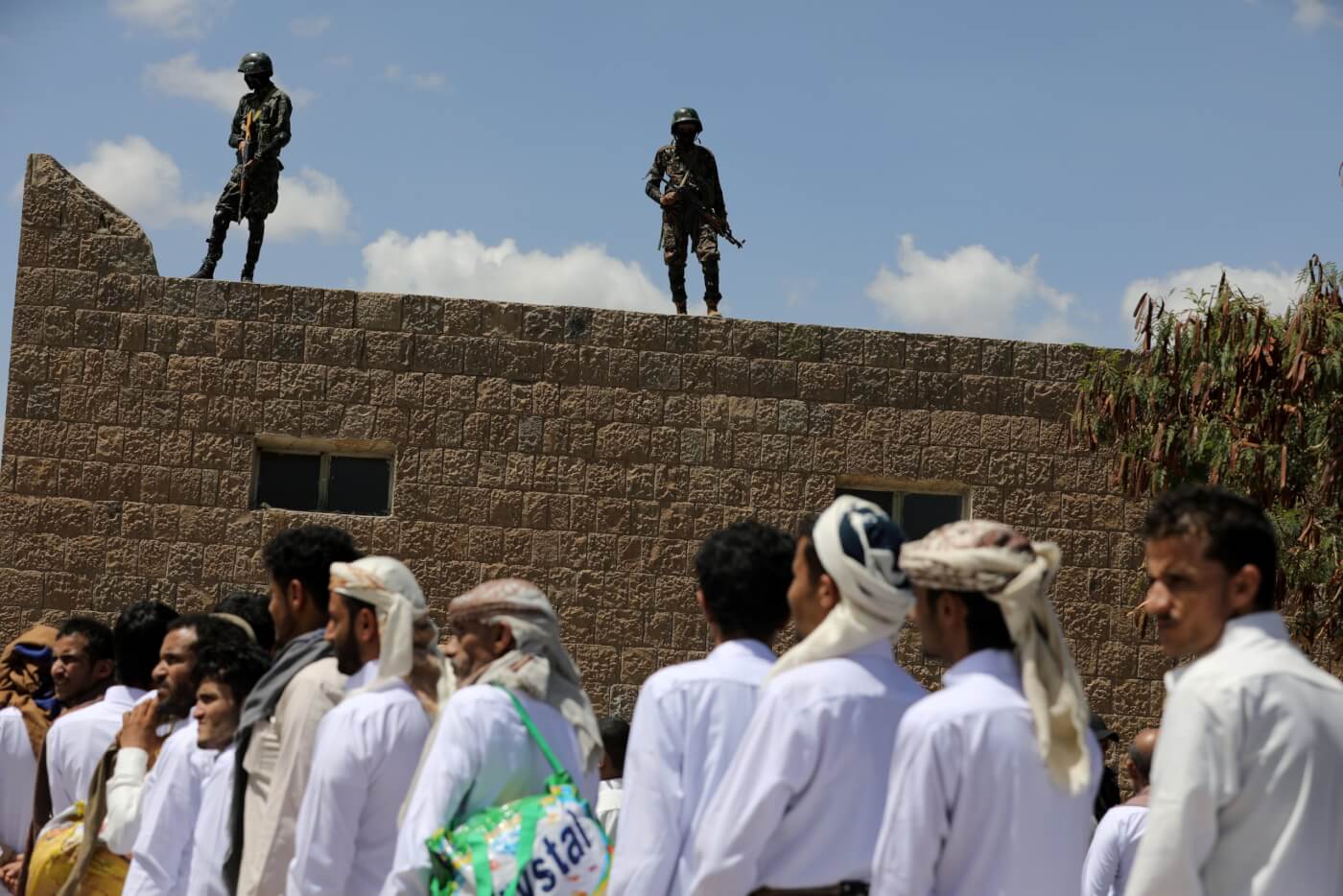More than 3,500 Yemenis have been forcibly disappeared in Houthi Prisons, according to Yemen’s Deputy Justice Minister of Yemen, Faisal Al-Majid.
Al-Majidi has reportedly sent documentation to the UN Human Rights Council (UNHCR) detailing 3,544 cases of enforced disappearance at the hands of the Iranian-backed Houthi militia.
The Deputy Justice Minister has said that 72 children and 17 women are among the confirmed cases. He also stressed that the real figure of enforced disappearances is likely to be much higher.
According to Human Rights Watch:
“Given the proliferation of armed groups and unofficial detention facilities [in Yemen], many families do not know where or why their relatives are being held. Even when a detainee’s whereabouts are learned, families have little access. Mistreatment is rampant and conditions poor. There is little due process, though lawyers and activists may seek to intervene. The fate of many remains unknown.”
Faisal Al-Majid criticised Martin Griffiths, UN Special Envoy for Yemen, accusing him of turning a blind eye to the rights of the forcibly disappeared persons as he is “trying to promote their file as a political issue not a human rights one.”.
He accused the UN organisations of being complicit in maintaining Griffith’s stance.
The timing is poignant as Sunday (30 August 2020) marks the UN observance of International Day of the Victims of Enforced Disappearances.
The UN recognises that:
“Enforced disappearance has frequently been used as a strategy to spread terror within the society”
By providing evidence of such widespread use of enforced disappearances, Al-Majid will hope that it forces a switch in position by the Special Envoy to be more sympathetic with the internationally recognised government.
He called on all family members of victims to file complaints to public prosecution to hold those responsible to account. Al-Majidi attributed a lion-share of the blame at the hands of Abdel-Malik Al-Houthi, head of the Houthi militia.
Back in 2018, a deal was reached between the Yemeni government and the Houthis to exchange 15,000 prisoners and forcibly disappeared persons. To date no progress has been made on this issue.
International Day of the Victims of Enforced Disappearances
The definition of enforced disappearances is set out in the Declaration on the Protection of All Persons from Enforced Disappearance which states enforced disappearance occurs when:
“persons are arrested, detained or abducted against their will or otherwise deprived of their liberty by officials of different branches or levels of Government, or by organized groups or private individuals acting on behalf of, or with the support, direct or indirect, consent or acquiescence of the Government, followed by a refusal to disclose the fate or whereabouts of the persons concerned or a refusal to acknowledge the deprivation of their liberty, which places such persons outside the protection of the law.”
The day came into being through resolution 65/209, on 21 December 2010, when the UN General Assembly “expressed its deep concern about the increase in enforced or involuntary disappearances in various regions of the world.”.
By the same resolution the Assembly welcomed the adoption of the International Convention for the Protection of All Persons from Enforced Disappearance, and decided to declare 30 August the International Day of the Victims of Enforced Disappearances, to be observed beginning in 2011.
Speaking on the day, UN Secretary-General Antonio Guterres said:
“Impunity compounds the suffering and anguish. Under international human rights law, families and societies have a right to know the truth about what happened. I call on Member States to fulfil this responsibility.”

